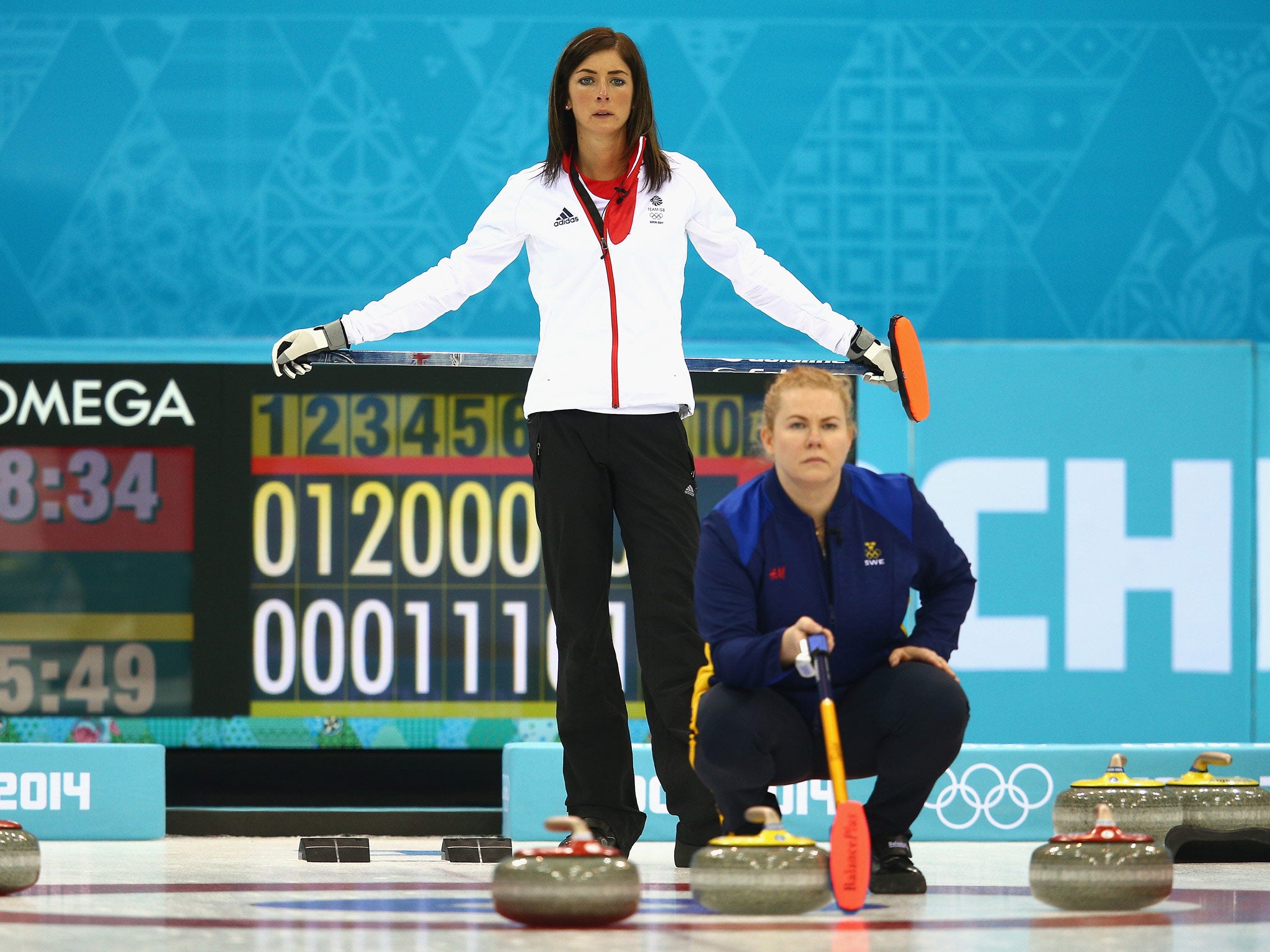Winter Olympics 2014: Britain's women's curling team freeze under weight of expectation in Ice Box
Led by Eve Muirhead, the women curlers are among Team GB's best hopes of a medal

Your support helps us to tell the story
From reproductive rights to climate change to Big Tech, The Independent is on the ground when the story is developing. Whether it's investigating the financials of Elon Musk's pro-Trump PAC or producing our latest documentary, 'The A Word', which shines a light on the American women fighting for reproductive rights, we know how important it is to parse out the facts from the messaging.
At such a critical moment in US history, we need reporters on the ground. Your donation allows us to keep sending journalists to speak to both sides of the story.
The Independent is trusted by Americans across the entire political spectrum. And unlike many other quality news outlets, we choose not to lock Americans out of our reporting and analysis with paywalls. We believe quality journalism should be available to everyone, paid for by those who can afford it.
Your support makes all the difference.It began with Scotland the Brave, took in Russia the bemused but boisterous and ended with Britain the beaten as Eve Muirhead’s rink, the favourites for gold, lost their opening fixture to Sweden, their main rivals. David Murdoch’s men began with victory over Russia but, at the end of a long day that demanded nearly six hours on the ice, they then also lost to the Swedes.
Curling, with its oddities and characteristic Winter Olympic impenetrable jargon, has become a mainstay of the Games and for its opening session the hot ticket was to the Ice Cube.
When two kilted pipers and drummers led the men’s team out into the arena – it is a tradition to begin every contest with a swirl of the pipes and a nod to the sport’s Scottish roots – there was a who’s who of Team GB, swaddled in their dark blue jackets, up in the stands.
There was Sebastian Coe, Princess Anne, Mike Hay, the team’s chef de mission, and alongside him the woman he coached to gold a dozen years ago in Salt Lake City, Rhona Howie (she has changed her name back from Martin to her maiden one after she and her husband split up). Even culture secretary Maria Miller, whose sporting knowledge quite possibly matches the curling know-how of the average Russian – or Briton for that matter – was there.
Curling is a four-year wonder. It disappears from the nation’s consciousness, and that of the sporting world at large and then every fourth February the sport’s language is heard again and it is hammer time. A hammer is the last shot of the end – a match is 10 ends. The organisers are cute enough to include a glossary of terms for the journalists who filled every press seat on offer. The man from BBC Scotland patiently took the British media through the finer points.
There was no such help on hand for the home crowd but it did not stop them creating an atmosphere that bordered on the frenzied. Chants of “Russia, Russia” echoed around the Ice Cube.
Murdoch, who led his rink to a comfortable 7-4 victory over the Russians thanks mainly to scoring four points in the sixth end, thought the crowd’s raw enthusiasm may have even hindered the hosts. “The different thing you will find here is the cheering when you are playing, and actually it might have been to Russia’s detriment that they were actually cheering when they were sliding out,” he said.
The noise was even louder during Muirhead’s match – the highly-rated Russian women were playing simultaneously two sheets down, en route to beating Denmark – and it caused her rink problems.
“The crowd is crazy out there and at the start of the game there were a few miscommunications,” she said. “You have to use a lot of hand signals, because there’s no way you can hear each other. When Russia play a good shot or their opponents miss a shot, the crowd go wild.”
Murdoch is at his third Games and has failed to win a medal at the previous two when widely expected to.
He is determined to treat this Games differently, to ignore the tension and expectation.
The Scot – all of the British curlers are Scottish – was noticeably relaxed on the ice, even in losing 8-4 to the Swedes. In contrast Muirhead seemed tense and had a poor game. Murdoch’s shot accuracy was 100 per cent against Russia, while Muirhead’s was down at 61 per cent, the lowest in her rink and 20 per cent less than the Swedish skip. She was only 19 at the Vancouver Games and struggled to deal with the occasion as Britain finished seventh.
She is now a world champion and, along with Lizzy Yarnold in the skeleton, represents Britain’s best chance of delivering a gold here. It is a mantle she does not appear comfortable with.
There is ample time to turn it around – each team plays nine round-robin games before the top four qualify. But this was not a good start.
“I’m a perfectionist – one of those players who is super-competitive,” said Muirhead. “I really don’t like losing and I’m harsh on myself.
“We played really well in the middle part and if we can take that to the next game tomorrow… it’s a new day and we will definitely step it up.”
Join our commenting forum
Join thought-provoking conversations, follow other Independent readers and see their replies
Comments